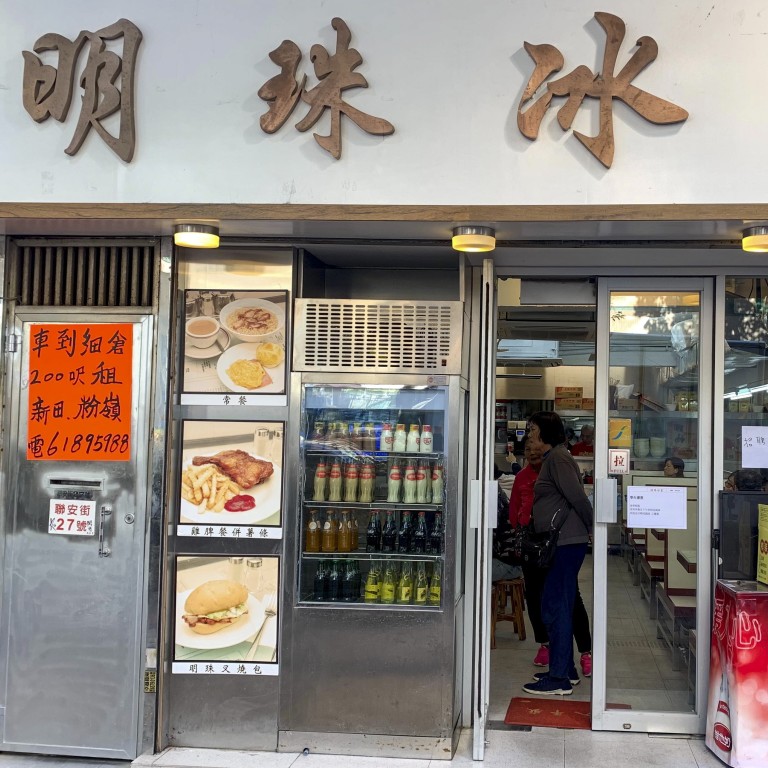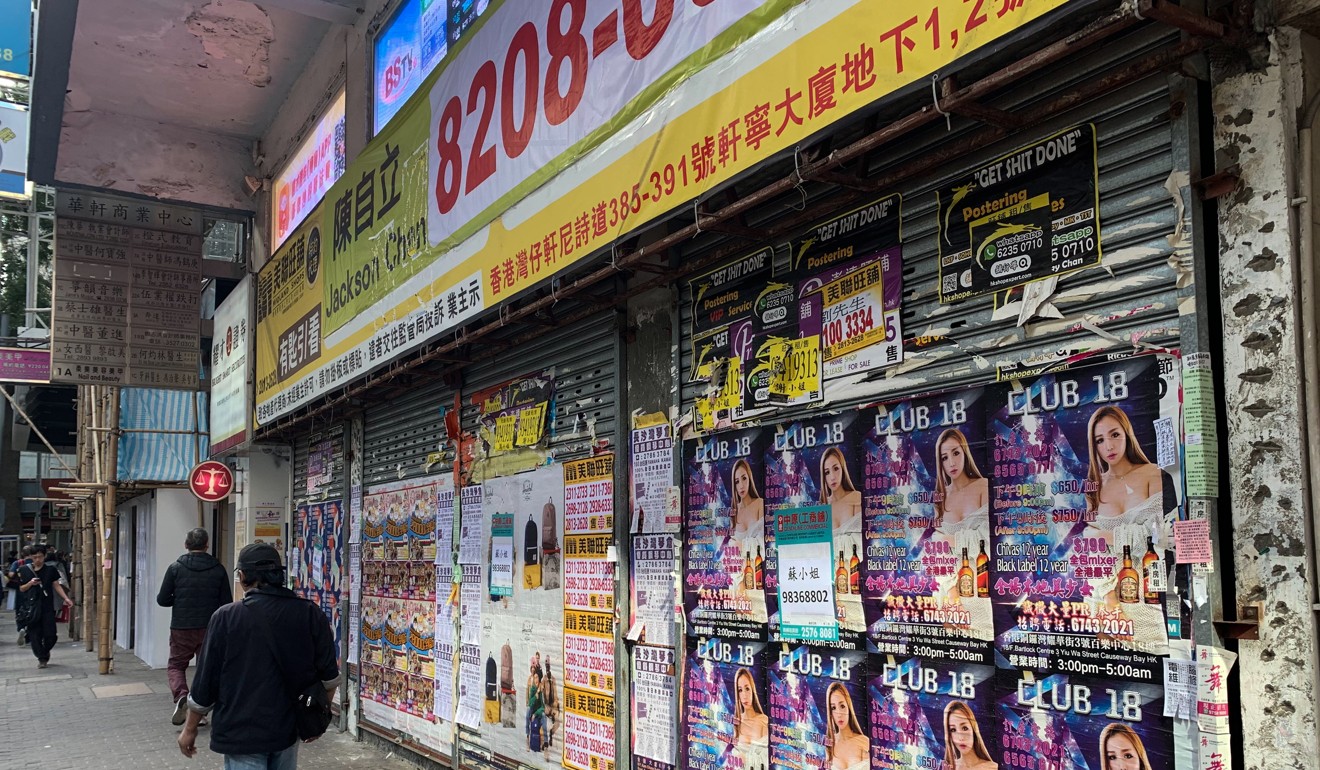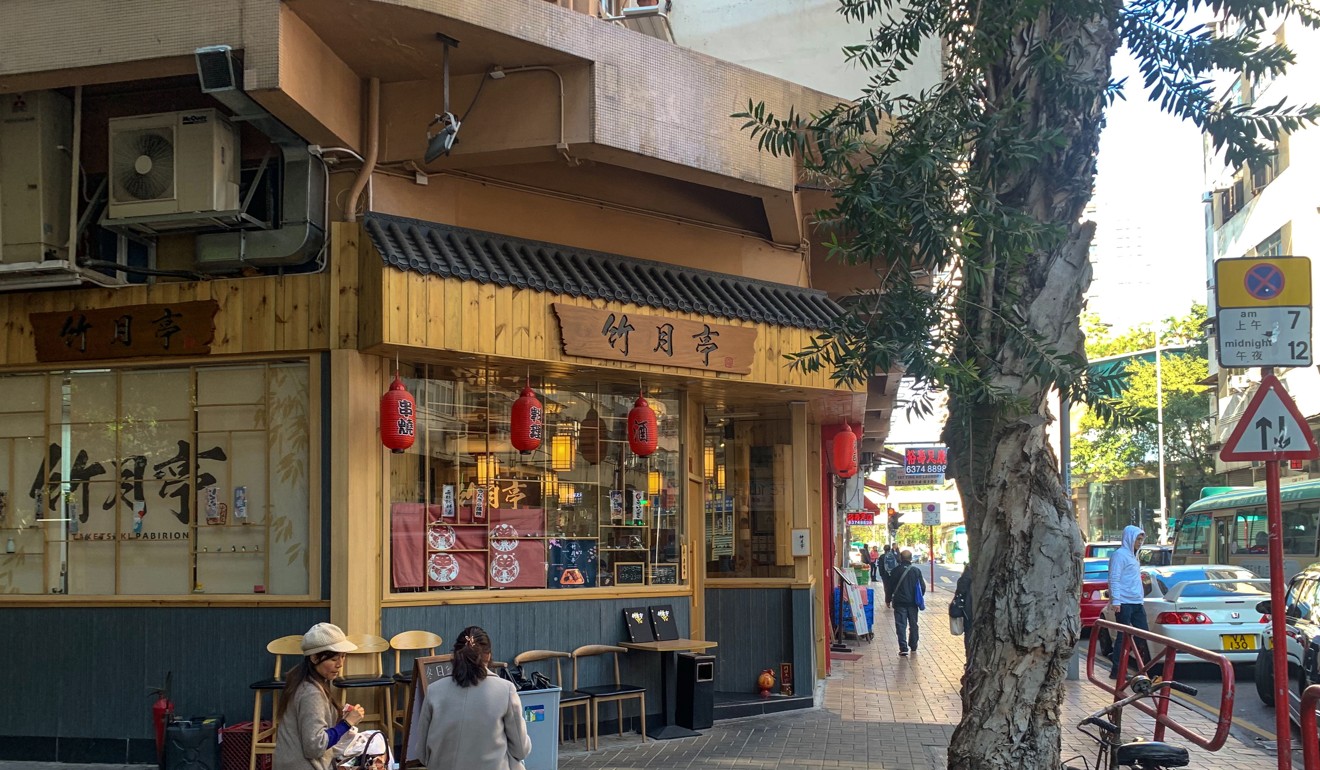
Protests a blessing in disguise for family-run restaurants in Fanling as residents stay put to avoid chaos
- Locally run restaurants in the sleepy neighbourhood of Fanling have seen revenues increase by up to 30 per cent in the past few months since the protests started as residents spend more in the community
- Some 40 stores along Hennessy Road, one of the most sought after retail strips in Hong Kong, have been lying vacant, the Post has found
The social unrest over the past six months have taken a toll on small businesses in Hong Kong’s prime areas, but family-run restaurants in Fanling in the New Territories have been kept rather busy, with residents staying close to home to avoid getting caught in the chaos.
In the past few years, small shops selling noodles and sandwiches in Causeway Bay – one of Hong Kong’s most expensive districts for retail rents – have been edged out by big retailers selling watches, jewellery and cosmetics to cater to tourists. But recently, even chain stores such as Sa Sa Cosmetics and Chow Tai Fook have announced plans to scale down their operations because of plummeting sales and declining tourist arrivals since the protests began in June.
As of December 6, the Post found that at least 39 stores were vacant along Hennessy Road, the main thoroughfare connecting Causeway Bay, Admiralty and Wan Chai, one of the most sought after retail strips by big chains.
“Over the last two months, many residents have chosen to stay in the local community rather than go out because of unstable traffic and uncertainty in the city,” said Dick Keung, 38, who runs Ming Zhu Cafe with his family in Luen Wo Hui in Fanling, which has so far been unaffected by the protests.

The cafe, which serves local delicacies such as pineapple buns with generous helpings of butter and soy milk in glass bottles, has seen a 20 to 30 per cent increase in business over the past two months.
“On days when train services were disrupted [because of the protests], many locals were unable to head out for work. When people in Fanling stop going out, they spend more money in the community on small restaurants like ours,” said Keung, who has lived in Fanling his entire life.
Hong Kong luxury retailers seek more rent relief as protests cut sales in deserted malls
“We make HK$10,000 [US$1,280] a day on average, but recently we have been making HK$2,000 to HK$3,000 more,” he said, adding that other costs like food ingredients have gone up a lot.
Around the corner, a small locally run Japanese restaurant has also been doing above average business over the past two months.
“We have seen more people coming to dine on the weekends, especially over the last two months,” said Karen Yeung Lai-kuen, floor manager of Taketsuki Pabirion.
Yeung, a Fanling resident in her 30s, also observed that generally people have been staying put in the neighbourhood on the weekends in the past few months.
“We just opened in May, so it will take time for a new restaurant like ours to settle. Luen Wo Hui is a small town, so we serve mainly locals. Some days are better than others, but most of the time we just break even,” she said.

As the ongoing social unrest has affected Hong Kong’s core retail areas, people have started to take more notice of the smaller restaurants in their local community, according to Helen Mak, senior director and head of retail services at Knight Frank.
“It is an opportunity for mom-and-pop restaurants,” she said.
Rents for street shops in prime shopping districts such as Central, Causeway Bay, Tsim Sha Tsui and Mong Kok are expected to drop by more than 15 per cent in the coming year, as people avoid these areas because of unstable traffic, preferring to stay put in their local communities instead, Mak said.
Along Yee Wo Street in Causeway Bay, a pharmacy broke its lease which was to expire in the middle of 2020, as the social unrest had hurt its business prospects. The rent for the 560 sq ft space was HK$400,000 when it was occupied in 2016, which was increased to HK$500,000 last year.
Mak said that although consumers have become more cautious about their spending, they tend to support family-run shops, as a result, stores in noncore retail areas have been buttressed by more local consumption in the past few months.
She noted that an increasing number of retail operators have expressed an interest in renting shops in predominantly residential communities, such as Fanling and Tseung Kwan O in the New Territories.
“If this new market trend continues, retailers who used to have stores concentrated in major shopping areas may consider dispersing their outlets to noncore retail areas.”

